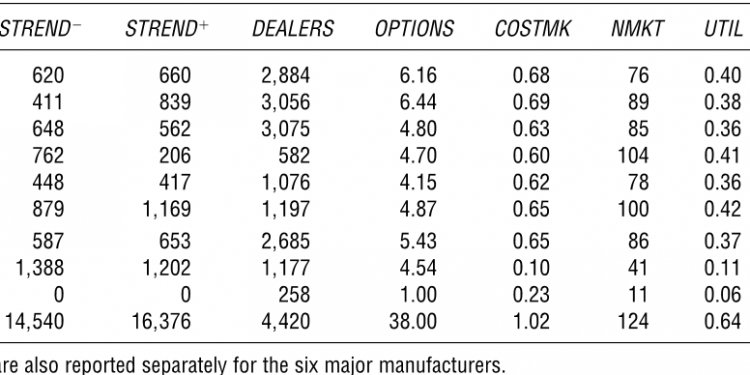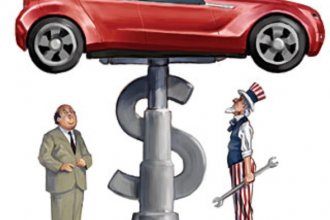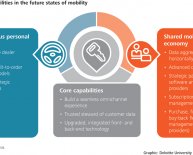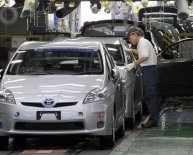
U.S. automobile industry
 The debate concerning the future regarding the U.S. automobile industry exemplifies the shortcomings of U.S. public discussion about large-scale technological change. The auto industry was widely vilified lately, with public opinion operating strongly against government monetary support because of it. There's been an insistence on “letting free markets work” although economic areas have collapsed into the worst crisis considering that the Great anxiety. Environmentalist critics associated with the business have actually understandably criticized the poor overall performance regarding the Big 3 automakers yet have never acknowledged the missing part of public policy and community finance in just about any enduring solution.
The debate concerning the future regarding the U.S. automobile industry exemplifies the shortcomings of U.S. public discussion about large-scale technological change. The auto industry was widely vilified lately, with public opinion operating strongly against government monetary support because of it. There's been an insistence on “letting free markets work” although economic areas have collapsed into the worst crisis considering that the Great anxiety. Environmentalist critics associated with the business have actually understandably criticized the poor overall performance regarding the Big 3 automakers yet have never acknowledged the missing part of public policy and community finance in just about any enduring solution.
The experts don't have any question believed their particular frustrations building—justifiably—for years. The dropped into a trap of high prices, including unaffordable benefits and a morass of regulating and contractual responsibilities (for instance, regarding dealerships) that enabled foreign producers to simply take an evergrowing share of this U.S. market. Even worse, the top Three (Chrysler, Ford, and General Motors) carried on to promote gas-guzzling SUVs whilst dangers to your weather and U.S. power protection mounted. To some degree the industry is also spending the price for spiraling nationwide wellness costs, that should be under much better community control (and on the general public spending plan), and for the nation’s insufficient fuel-efficiency policies and low gas taxes in comparison to European countries and Asia, which facilitated consumer demand for big automobiles. However many of the business’s dilemmas indeed be a consequence of its very own strategic miscalculations.
Nevertheless, the scorn when it comes to business misses four crucial points. First, a collapse of the Big Three inside following months would add another economic disaster toward crisis-roiled economic climate. Millions of jobs could be lost in locations with high jobless and no offsetting task creation. 2nd, the automakers’ dire state could be the result of the remarkable collapse of all of the domestic automobile product sales as opposed to the decreasing share associated with the U.S. industry in those product sales. The Big Three had been financially poor, to be sure, nonetheless they wouldn't be at precipice of bankruptcy had been it not when it comes to worst recession considering that the Great Depression. Conversely, with a general economic data recovery, the top Three are viable. Third, the public and governmental leadership bear huge co-responsibility with industry the misguided SUV era, featuring its flagrant neglect of power protection, climate dangers and unsustainable home borrowing from the bank.
Fourth, and a lot of crucially, the changeover to high-mileage cars needs to be a public-private work. To wait for “free market” to create it about is to wait forever. Significant technical modification, particularly from internal combustion engines to electric automobiles recharged on a clear power grid or with hydrogen gas cells, needs an enormous infusion of community plan and community funding. Research and development depend on huge outlays, and lots of for the fresh fruits of R&D should as well as in any event becomes general public products rather than personal intellectual home. That’s the reason why general public financing for R&D is really so important, and it has already been widely recognized and practiced by the U.S. government for a hundred years in lots of companies, including aviation, computer systems, telephony, the Internet, medicine development, advanced plant breeding, satellites, GPS and much, so much more.
To sit back and bemoan the fact that the upcoming Chevy Volt plug-in hybrid have a first-year price tag of $40, 000 will be skip the point. The costs of early-stage development and implementation tend to be inevitably far above those that businesses can realize over time. Public policy should help to advertise this transition through these types of actions given that public-sector procurement of very early designs for authoritative vehicle fleets, special taxation and funding incentives for very early customers and higher gas fees that internalize the expenses of climate change and oil import reliance.

















